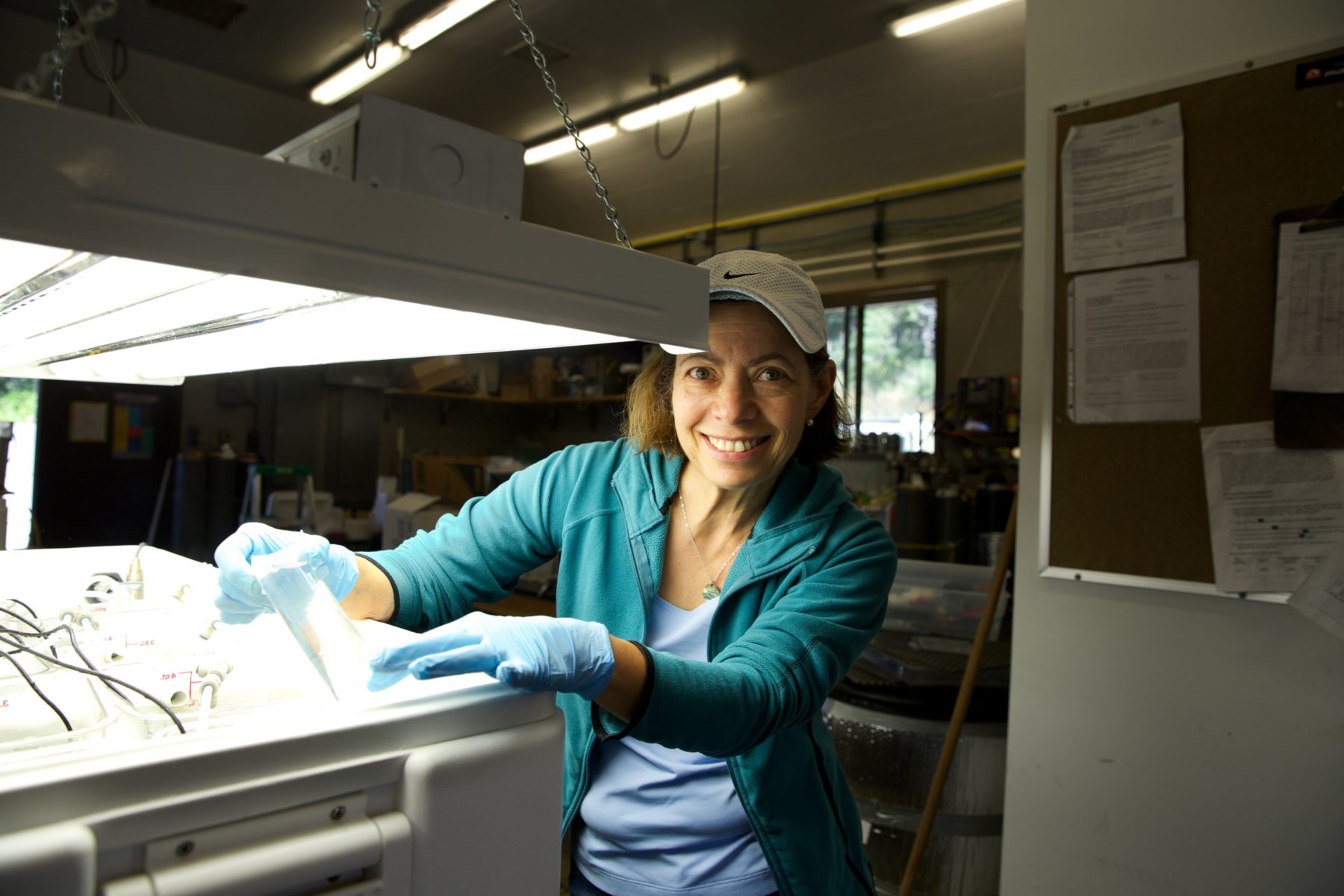Monica Orellana Promoted to Principal Scientist
 isbscience.org/news/2015/06/05/monica-orellana-promoted-to-principal-scientist/
isbscience.org/news/2015/06/05/monica-orellana-promoted-to-principal-scientist/
In her 11 years as a senior scientist in the Baliga lab at ISB, Monica has successfully developed a rigorous program on marine and oceanographic systems, and has been a pioneer in transcending traditional disciplinary boundaries and transferring systems methodology developed at ISB to explorecomplex oceanographic problems of global importance. Her highly collaborative and cross-disciplinary work involves laboratory and field studies that integrate physiological, molecular and physical-chemical approaches to understand the role of phytoplankton in shaping marine ecosystems. Her impressive innovative research portfolio includes the following exciting and transformative discoveries: 1) Phytoplankton and their microgel secretions play a critical role in the production of cloud condensation nuclei in remote pristine atmospheric areas, 2) The structured landscape of “dissolved organic carbon” reflects areas of high productivity, and reveals the previously cryptic pattern of carbon sequestration into the deep ocean, and 3) Programmed cell death (PCD) plays an important role in driving the interaction between species in a carbon-limited environment.
Monica also holds an appointment as Principal Scientist/Engineer at the University of Washington, Applied Physics Lab-Polar Science Center, and she collaborates with institutes around the world, including University of Witwatersrand in South Africa, University of Washington, Stanford University, University of Miami, and Portland State University, to name a few. She maintains an impressive portfolio of funding from multiple NSF divisions to support her research programs in ocean acidification and carbon sequestration in the Ross Sea. In addition, she is an enthusiastic mentor for graduate students and postdoctoral scientists, and she plays an active role in outreach and education efforts related to ocean acidification, such as the design and dissemination of a successful high school ocean acidification education module that has been tested by more than 2000 students.
As a principal scientist, Monica will be able to continue to lead and expand her cutting-edge approaches to applying systems biology to the marine oceanographic research community, and serve as a inspiring role model to young scientists.






